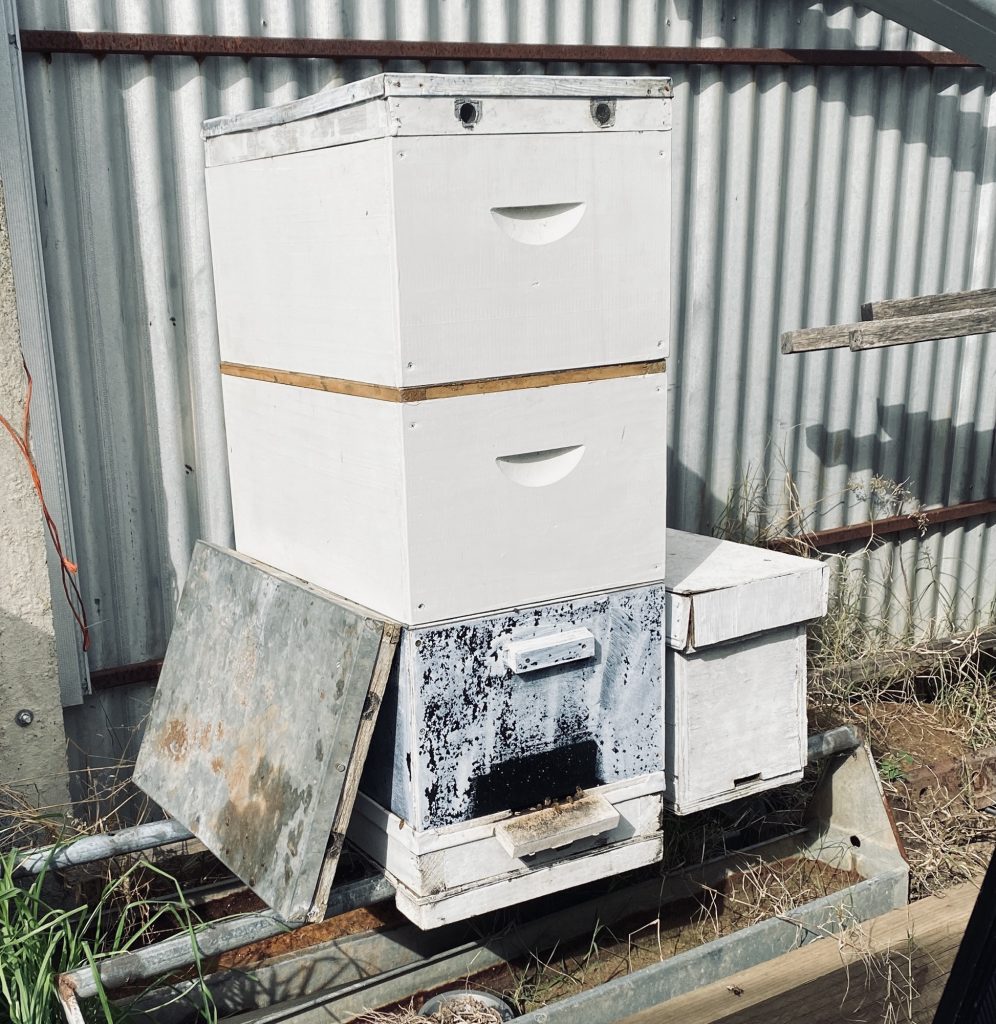
Why the Right Beekeeping Equipment Matters
When you’re starting out as a beginner beekeeper in NSW, choosing the right gear can make all the difference. Good equipment keeps your bees safe, makes hive inspections easier, and helps you build confidence quickly.
With varroa mite now present in NSW, reliable tools are more important than ever. Proper hive management and safe inspections depend on being well prepared.
Protective Clothing: Your First Line of Defence
Stings are one of the biggest fears for beginners. Quality protective gear gives you confidence while you learn. At minimum, you’ll need:
- Bee Suit or Jacket: Full suits offer maximum protection. Jackets are cooler in summer.
- Gloves: Leather or ventilated gloves reduce stings but still allow dexterity.
- Boots: Gumboots or sturdy work boots work well.
- Veil: Always wear a veil, even during quick inspections.
Tip: NSW summers can be hot, so consider lightweight, ventilated suits designed for Australian conditions.
The Hive: Where It All Begins
In Australia, the Langstroth hive is the standard for beginners. It’s easy to source parts, learn management techniques, and find support from other beekeepers.
A typical starter hive includes:
- Baseboard
- Brood box with frames
- Inner cover
- Lid
You can start with one brood box and expand as the colony grows. Some beginners also consider Flow Hives, which allow easier honey harvesting, but they are more expensive.
Hive Tools You’ll Use Every Week
- Hive Tool – Used to separate frames and boxes glued together with propolis.
- Smoker – Calms the bees and reduces defensive behaviour during inspections.
- Bee Brush – Gently removes bees from frames.
- Frame Grip (optional) – Helps lift heavy frames more easily.
These small tools quickly become part of every inspection.
Feeding and Watering Equipment
In times of nectar shortage, you may need to feed your bees. A beginner setup often includes:
- Frame Feeder or Top Feeder – Allows feeding sugar syrup inside the hive.
- Water Source – Bees need a consistent supply of clean water. A shallow container with pebbles works well in NSW backyards.
Monitoring Tools for Varroa Mite
With varroa mite now in NSW, new beekeepers must learn to monitor regularly. Beginners should have:
- Alcohol Wash Kit or Sugar Shake Kit – For testing mite levels.
- Sticky Boards – Placed under the hive to track mite drops.
Local beekeeping clubs often run workshops on using these tools effectively.
How Much Does Beekeeping Equipment Cost in NSW?
Here’s a rough guide for beginners:
- Protective gear: $150–$300
- Hive and frames: $250–$400
- Tools (smoker, hive tool, brush): $80–$150
- Bees (nucleus colony): $200–$300
Estimated total: $700–$1,100 for a complete beginner setup.
Where to Buy Beekeeping Equipment in NSW
- Local Beekeeping Clubs often sell second-hand gear at good prices.
- Specialist Suppliers like Hornsby Beekeeping Supplies, Sydney Beekeeping Supplies, and online stores provide starter kits.
- Avoid cheap imports that may not last or meet Australian standards.
FAQs: Beekeeping Equipment for Beginners in NSW
Q1: Do I need to buy new equipment or can I use second-hand?
Second-hand gear can be affordable but may carry pests or disease. If you choose second-hand, sterilise it thoroughly and avoid old brood comb.
Q2: What’s the difference between a Langstroth hive and a Flow Hive?
Langstroth hives are cheaper and widely used, making it easier to find support. Flow Hives allow honey harvesting without extracting frames, but cost more upfront.
Q3: How many hives should a beginner start with?
One hive is enough to learn the basics. Some beekeepers recommend two hives, which allows comparison and can be helpful if one colony struggles.
Q4: Can I start beekeeping without a smoker?
It’s not recommended. A smoker makes inspections safer and calmer, reducing stress for both you and the bees.
Q5: Where can I learn to use my equipment properly?
Joining a local beekeeping club is the best way. Clubs provide training, mentorship, and often let you practice with shared hives before setting up your own.
Final Thoughts
Having the right equipment sets you up for success as a beginner beekeeper in NSW. With protective clothing, a standard Langstroth hive, essential tools, and mite monitoring gear, you’ll have everything you need to start confidently.
Next, read my Beekeeping for Beginners in NSW Guide for tips on hive location, seasonal care, and regulations before you bring your bees home.
Leave a Reply